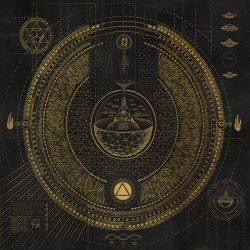A glorious trip through the dark underbelly of Tucson desert rock
 First off. Who on earth could resist a band who list as influences, ‘70s Spaghetti Westerns and ‘80s horror films, Edgar Allan Poe and Narco cumbia ( the latter a particularly intoxicating mix of sensuality and swing emanating from Columbia) and whose name refers both to a Peruvian blood-red drink and Peruvian psychedelia? That list basically ticks all of our boxes and when you add that said band are the latest to emerge from Tucson, a city which seems to be in the zeitgeist for pushing the boundaries of southwest American music to its outer limits, then, all the better.
First off. Who on earth could resist a band who list as influences, ‘70s Spaghetti Westerns and ‘80s horror films, Edgar Allan Poe and Narco cumbia ( the latter a particularly intoxicating mix of sensuality and swing emanating from Columbia) and whose name refers both to a Peruvian blood-red drink and Peruvian psychedelia? That list basically ticks all of our boxes and when you add that said band are the latest to emerge from Tucson, a city which seems to be in the zeitgeist for pushing the boundaries of southwest American music to its outer limits, then, all the better.
XIXA – seemingly pronounced Chicha, after that Peruvian drink we mentioned – are an ensemble who, like fellow Tucsonians, Calexico, start off from their desert base and incorporate the exotic sounds of southern neighbours but, in XIXA’s case they cast further afield. They share with Calexico that sense of casting a bold, widescreen cinematic feel to their music, although in XIXA’s case there is more melodrama with hints of blood-soaked Italian Cinema Giallo along with a whiff of Jodorowsky’s El Topo, and there’s certainly more fuzz and distortion in the guitars while the vocals at times seem to have crawled from a tomb. In addition, XIXA have a hint of darkness to them – call it shamanistic or a belief in magick – symbols abound on the sleeve art and while some lyrics recall Lee Hazlewood’s trippy vision of mythology on ‘Some Velvet Morning’, there’s also much pre and post-Christian mysticism included. Add to the mix a healthy dollop of psychedelia and Latin rock along with a soupçon of Mark Lanegan and you might start to get a sense of what XIXA sound like.
Better yet, stick the disc on and prepare to be blown away. With twin percussion (acclaimed veteran Winston Watson on drums and Efrén Cruz Chávez on Timbales and percussion) alongside twin guitar leads (Gabriel Sullivan and Brian Lopez who both share lead vocals) driving it along, the album positively pulsates with energy. ‘Thine Is The Kingdom’ opens the show with a flourish with rattlesnake percussion and some seriously distorted guitar and keyboards before dark angelic voices float in, hymning a legion of lost souls seemingly stuck in some form of purgatory. ‘Genesis Of Gaea’ then ramps it up with the first of their Morricone from hell soundscapes while ‘Land Where We Lie’ shimmers with a desert heat haze although there’s also a simmering subplot which alludes to ‘Cry Little Sister’, the theme song for the ‘80s vampire flick, ‘The Lost Boys’, a point amplified by the band’s use of a Greenland children’s choir to close the number.
Latino rhythms and twang guitar are to the fore on ‘Eclipse’ and ‘Soma’, the latter a song influenced by a mild hallucinogen, while the Saharan band, Imarhan, come on board on ‘Eve Of Agnes’ to broaden XIXA’s horizons on a song which recalls the best of the German/African/Middle East conglomeration, Dissidenten. There’s more Morricone on the introduction to ‘May They Call Us Home’ which eventually resolves into a hyperreal trip though Peruvian Chicha sounds with parping organ and hordes of guitars sounding as if they did, indeed, come from Mars.
The ghost of Edgar Allan Poe is disinterred to haunt the nightmarish sleepwalk of ‘Nights Plutonian Shore’ which features another Tucson resident, Sergio Mendoza, on piano, and the band close this epic listen with another dark trawl through the chambers of loss, dread and danger which have populated it. ‘Feast Of Ascension’ sums up some of the yin/yan of the album. Dark and mysterious but striving for the light. The band glower and prowl while the voices of The Uummannaq Children’s Choir are an angelic counterpoint but to little avail as the song finally erupts in a pustulating sonic mess which is quite glorious.
XIXA might be the dark side of the open vistas of the southwest but if you accept their invitation you are in for a thrilling ride.


